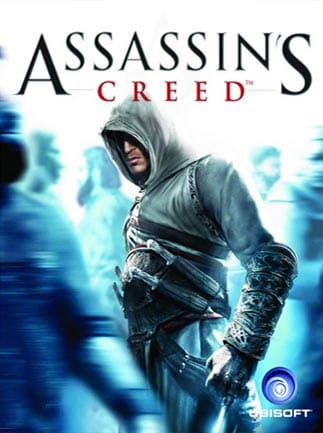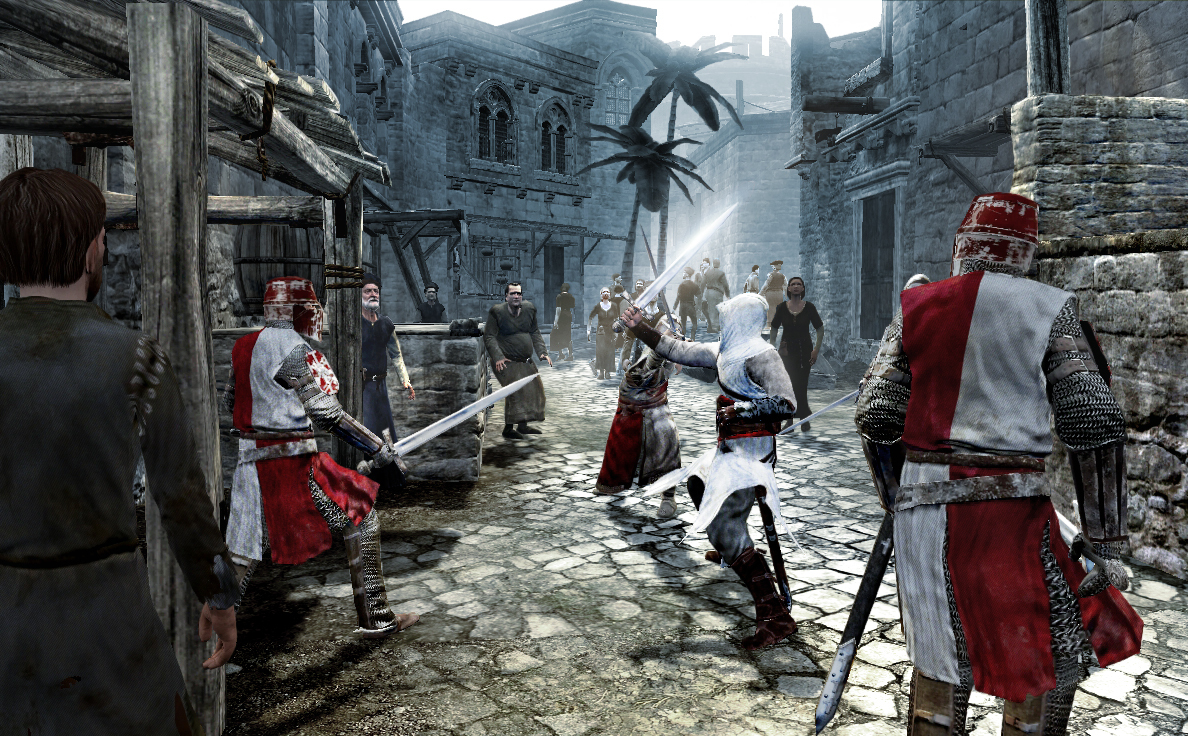
The Sands of your time into an open-world approach, taking advantage of the improved processing power to render larger spaces and crowds. Narratively, the team wanted to maneuver faraway from the Prince being someone next in line for the throne but to possess to figure for it; combined with research into secret societies led them to specialize in the Assassins, heavily borrowing from the novel Alamut. They developed a narrative where the player would control an Assassin that served as a bodyguard for a non-playable Prince, leading them to call this game Prince of Persia: Assassin. Ubisoft wasn't proud of a Prince of Persia game without the Prince because the playable character, but this led to the marketing division to suggest the name Assassin's Creed, playing off the creed of the Assassins, "nothing is true; everything is permitted". Ubisoft Montreal ran with this in creating a replacement property, eliminating the Prince and creating the conflict between the Assassins and Templar Knights. Further, in postulating what other assassinations they might account for throughout human history, they came onto the thought of genetic memory and created the "Animus" device and modern storyline elements, which further allowed them to elucidate certain facets of gameplay, like accounting when the player fails a mission, within the same way that they had wiped out The Sands of Time main premise focuses on the efforts of the Assassins in stopping the Knights Templars from finding and securing various artifacts of the traditional species, referred to as "Pieces of Eden", which hold world power and are capable of controlling discretion. within the era, the Assassins, also referred to as "The Brotherhood", specialize in combating the Templars, who evolved with the planet and developed into a mega-corporation conglomerate with multiple branches called Abstergo Industries. to assist trace Pieces of Eden to locations within the modern-era world, Abstergo secretly develops a tool called the "Animus" - a computerized system that will allow one to "re-live" and knowledge the memories of previous people through remnants of their genetic material. Initially only capable of allowing an individual to explore the memories of their genetic ancestors, later improvements to the Animus allow virtually anyone to experience the lives of a person utilized in the device. Overexposure to the animus causes the "bleeding effect", which ends up in giving the user skills and skills of his ancestors, but is additionally dangerous for the user because it can damage their mind, causing symptoms like dementia, insanity, dissociative identity disorder or brain damage.
The initial story arc of the games focuses on the efforts of the Brotherhood to thwart Abstergo's plans to secure a bit of Eden and ultimately to uncover a way to stop the planet being destroyed by another solar storm in 2012, while several titles after this specialize in the efforts of every side to cause problems for his or her opponent in their continuing conflict. the discharge of Origins introduced a replacement story arc focused on a researcher who becomes involved in looking for memories of ancient assassins, and becoming involved in seeking the means to stop either society gaining the upper-hand over the opposite. Assassin's Creed Unity takes place during the French Revolution. The player, mentioned because the Initiate, is playing a computer game developed by Abstergo on a console connected to Aniums. They explore the memories of Arno Dorian, the son of an Assassin raised by a Templar Grand Master. Arno finds that Templars are using François-Thomas Germain, a silversmith, to orchestrate the Revolution. The Initiate is contacted by the Assassins, who inform them that Abstergo is checking out Germain's remains as he's the Sage and carries Isu DNA. In Assassin's Creed Syndicate, the Assassins have the Initiate relive the memories of a dual brother and sister Jacob and Evie Frye, who were active during Victorian England and therefore the technological revolution. The Frye twins attempt to stop Templar Grand Master Crawford Starrick from finding the Shroud, an ancient artifact that will be wont to heal wounds and even resurrect the dead. The present-day Assassins realize that Abstergo shall use the Shroud on a sample of Isu DNA to revive an Isu. This story was resolved within the series' magazine continuation, with the Assassins discovering that Juno's consciousness was digitized after her failed plan to take
physical form.
SCREENSHOTS





No comments:
Post a Comment